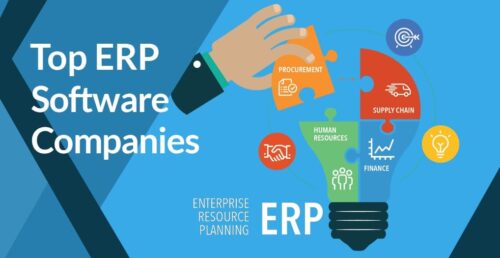In the fast-paced world of business, efficiency is key. Enter Enterprise Resource Planning (ERP) systems, the backbone of modern organizations. This article will delve into the top ERP systems that have been revolutionizing the way businesses operate. From managing resources to enhancing decision-making, these systems play a pivotal role in the success of enterprises.
Understanding ERP Systems
What is ERP?
ERP, or Enterprise Resource Planning, refers to a suite of integrated applications that help businesses manage and automate various back-office functions.
Why Businesses Need ERP Systems
Explore the critical reasons why businesses, regardless of size, are increasingly turning to ERP systems for seamless operations.
Top Players in the ERP Arena
1. SAP ERP
Uncover the features that make SAP ERP a market leader and how it caters to diverse industry needs.
2. Oracle NetSuite
Delve into the cloud-based capabilities of Oracle NetSuite and how it fosters scalability for growing enterprises.
3. Microsoft Dynamics 365
Discover how Microsoft’s offering, Dynamics 365, combines ERP and CRM functionalities for comprehensive business management.
4. Infor ERP
Explore the specialized solutions Infor ERP provides, tailoring to specific industries and enhancing operational efficiency.
Choosing the Right ERP System for Your Business
Factors to Consider
Guidance on selecting the ERP system that aligns with your business requirements, from scalability to customization options.
Implementation Challenges
Understand the common challenges businesses face when implementing ERP systems and how to overcome them.
Realizing the Benefits of ERP Systems
Increased Efficiency
Detailing how ERP systems streamline workflows, reducing manual efforts and enhancing overall efficiency.
Data Accuracy and Reporting
Highlighting the role of ERP in ensuring accurate data and providing robust reporting capabilities for informed decision-making.
Future Trends in ERP
Artificial Intelligence Integration
Discuss the growing trend of integrating AI into ERP systems and its potential impact on business processes.
Mobile ERP Solutions
Explore how mobile ERP solutions are becoming essential for businesses with remote and on-the-go workforce.
FAQs About ERP Systems
-
Q: How long does it take to implement an ERP system?
- A: The implementation time varies based on the size and complexity of the business. On average, it can take several months to a year.
-
Q: Can small businesses benefit from ERP systems?
- A: Absolutely. Many ERP providers offer solutions scaled for small businesses, providing them with the same operational advantages as larger enterprises.
-
Q: Are ERP systems secure?
- A: Yes, most ERP systems come with robust security features to protect sensitive business data. Regular updates and adherence to security best practices are crucial.
-
Q: What is the cost of implementing an ERP system?
- A: The cost depends on factors such as the size of the business, the chosen ERP provider, and the extent of customization required. It’s an investment with a significant long-term return.
-
Q: Can ERP systems be integrated with other business applications?
- A: Yes, many ERP systems offer integration capabilities with other business applications, creating a seamless and interconnected digital ecosystem.
Conclusion
In conclusion, embracing an ERP system is not just a choice; it’s a strategic move towards business optimization. The top ERP systems discussed here exemplify the technological prowess available to modern enterprises. By choosing the right ERP system and navigating implementation challenges, businesses can elevate their operations to new heights.
